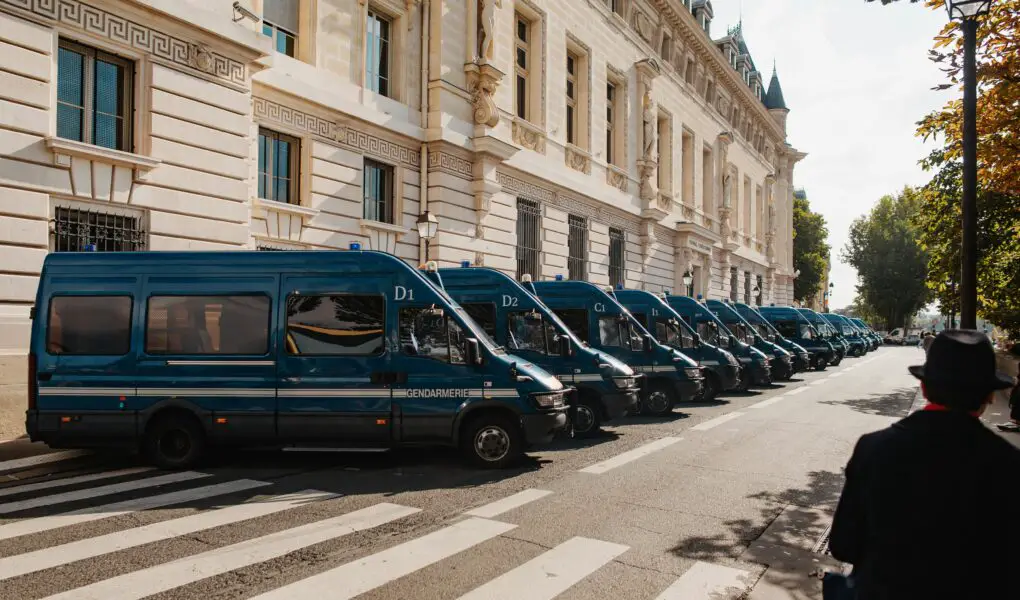When it comes to purchasing a vehicle—whether it’s for personal use, a business, or a nonprofit—many people are unaware that there are government grants available to help fund such purchases. Government Grants for Vehicles provide financial assistance to individuals, organizations, and businesses that need transportation solutions but might not have the funds to purchase a vehicle outright.
These grants are designed to promote environmental sustainability, support small businesses, enhance mobility for underserved communities, and aid nonprofit organizations in meeting their transportation needs.
While getting a government grant for a vehicle may sound like a dream come true, the process can often feel overwhelming. You need to know where to look, what types of grants are available, and how to craft a successful application.
In this comprehensive guide, we’ll walk you through everything you need to know about government grants for vehicles, including the types of grants available, the eligibility requirements, and tips on how to apply.
We’ll also share real-world examples and success stories that illustrate how these grants have made a significant impact.
Types of Government Grants for Vehicles
There are several categories of vehicle grants, each tailored to different needs and goals. Understanding the various types can help you identify which ones are most relevant to your situation.
1. Environmental Vehicle Grants
If you’re looking to purchase an environmentally friendly vehicle, such as an electric vehicle (EV) or a hybrid car, many government programs provide funding to support these types of purchases. These grants are part of the government’s broader initiative to reduce carbon emissions and encourage green energy solutions.
a) Federal Programs: The U.S. government offers several incentives through the Department of Energy (DOE) to reduce the cost of purchasing electric vehicles. The Electric Vehicle Incentive Program and Clean Cities Coalition are just a few of the available programs that fund EV purchases or assist with infrastructure development, such as installing charging stations.
- Data Point: According to the DOE, over $300 million in funding was provided for projects in 2020 alone, aiming to enhance the adoption of alternative fuel vehicles. This type of grant can help reduce the overall cost of purchasing an EV, while also promoting a cleaner environment.
- Source: DOE Alternative Fuels Data Center
b) State Programs: In addition to federal grants, many states offer specific incentives for purchasing electric or hybrid vehicles. For instance, California offers substantial rebates through the California Clean Vehicle Rebate Project (CVRP), which provides up to $2,000 for eligible electric vehicles. States like New York and Colorado also have similar programs to encourage cleaner vehicle choices.
- Stat: In 2021, California approved over $200 million in incentives for clean vehicles through CVRP, driving a significant increase in EV adoption.
- Source: California Clean Vehicle Rebate Project
Key Stat:
- In 2021, electric vehicle sales increased by 85% in the U.S. alone.
- The U.S. government has set a target to have 50% of all new vehicles sold in 2030 be electric.
These environmental vehicle grants don’t just apply to individual purchasers. They often include funding for charging infrastructure, research and development, and support for businesses that contribute to the green economy.
2. Nonprofit Vehicle Grants
Nonprofit organizations often face challenges when it comes to funding their operations, including purchasing vehicles to transport goods, offer services, or even provide transportation for employees and clients. Luckily, many government grants exist to help nonprofits purchase vehicles for operational needs.
a) Federal Programs: The Department of Transportation’s (DOT) 5310 Program offers grants to nonprofit organizations that need vehicles for public transportation. This program is intended for services aimed at elderly people, individuals with disabilities, and those in underserved areas.
- Example: A local nonprofit serving seniors might use a DOT grant to purchase a wheelchair-accessible van, ensuring that elderly community members can travel to medical appointments, community centers, or social events safely and comfortably.
b) State Programs: Many states have specific vehicle grants for nonprofits. For example, New York’s Nonprofit Transportation Program helps organizations acquire vehicles that can serve their communities, particularly for those providing mobility services.
Nonprofits can also access other resources through grants provided by the Federal Transit Administration (FTA), which helps fund transportation programs aimed at improving access to services for individuals with disabilities.
- Real-World Example: In one success story, a nonprofit in rural Maine used an FTA grant to buy a modified bus. This vehicle was adapted to accommodate wheelchairs, significantly enhancing mobility for disabled residents and improving access to essential services.
3. Small Business Vehicle Grants
Small businesses often require reliable transportation for deliveries, client visits, and other business-related tasks. There are government grants available to support these businesses in purchasing vehicles.
a) Federal Programs: Through the Small Business Administration (SBA), small businesses can receive grants to purchase vehicles, particularly if the vehicle is used to support the growth of the business. The SBA 7(a) Loan Program and the Microloan Program are two such options that offer funding to small businesses for a variety of expenses, including purchasing commercial vehicles.
- Tip: While SBA programs often take the form of low-interest loans rather than outright grants, they offer favorable terms that make vehicle financing more accessible to small businesses.
b) State Programs: Some states have local government incentives specifically for small businesses that need to buy vehicles to facilitate their operations. For example, Texas offers grants for businesses that purchase electric delivery trucks to help reduce emissions in urban areas.
Success Story:
A small delivery service in Austin, Texas, received a state grant for purchasing an electric delivery truck. The business experienced lower fuel costs and maintenance expenses, improved its carbon footprint, and gained positive publicity from environmentally conscious customers.
4. Rural Vehicle Grants
If you live in a rural area, the government has several programs designed to improve mobility in remote areas. These grants are essential for ensuring that residents of rural regions have access to reliable transportation.
a) Federal Programs: The Rural Transit Program under the Federal Transit Administration provides funding for rural communities to purchase vehicles for public transportation, improving access to medical care, schools, and work opportunities.
- Data Point: Rural areas often face a shortage of reliable transportation options. For example, the National Rural Transit Assistance Program reported a need for over 2,000 additional vehicles in rural communities across the U.S.
b) State Programs: Many states offer similar grants to rural areas. For instance, the Rural Transportation Grant Program in Alabama provides funds to local governments for vehicle purchases in rural communities, ensuring that residents have transportation options available.
Case Study:
A county in West Virginia used a combination of federal and state rural grants to modernize its fleet of public buses. This update helped reduce maintenance costs, improve service reliability, and attract more riders, which in turn fostered community development.
Eligibility for Government Grants for Vehicles
While each program may have specific eligibility requirements, there are some general guidelines that apply to most government grants for vehicles. Here are the key things you’ll need to meet to qualify:
- Nonprofit Status (for nonprofit organizations): Many vehicle grants are reserved for registered 501(c)(3) organizations. You will need proof of your nonprofit status to apply for these grants.
- Environmental Impact (for green vehicles): For grants aimed at supporting electric or hybrid vehicles, your application may be subject to evaluation based on the environmental impact of your purchase. Some programs require evidence of reduced emissions or energy efficiency.
- Small Business Status (for small businesses): If applying as a small business, your company must meet the criteria set by the SBA, such as employee headcount and annual revenue limits.
- Residency (for rural grants): Some rural vehicle grants may be limited to residents of specific states or rural counties. Ensure your location qualifies under the grant guidelines.
Other considerations may include:
- Proof of Need: Demonstrating why you require a new vehicle, such as outdated or non-functional existing vehicles, or specific community needs.
- Detailed Budget: A clear outline of how the funds will be used, including purchase price, maintenance, and potential modifications required.
- Impact Assessment: Describing the potential positive impact that the new vehicle will have, be it environmental benefits, increased business productivity, or enhanced community services.
How to Apply for Government Grants for Vehicles
Applying for government grants for vehicles can be a multi-step process. Here are the basic steps to get started:
1. Research Available Grants
Start by identifying the grants that align with your needs. Visit websites like Grants.gov, SBA.gov, and the Environmental Protection Agency (EPA) for comprehensive lists of available vehicle grants. Additionally, state and local government websites can provide region-specific opportunities.
- Tip: Use search terms like “vehicle grants,” “transportation grants,” or “electric vehicle rebates” along with your state or locality to narrow down options.
2. Check Eligibility
Review the eligibility criteria to make sure you qualify for the grant. Some grants may require specific vehicle types or business purposes, so make sure you meet all the requirements before applying.
- Common Requirement: Proof of nonprofit status for nonprofit grants, tax documents for businesses, or residency verification for rural grants.
3. Prepare Your Proposal
Most government grant applications will require a detailed proposal outlining the purpose of the grant, how you plan to use the vehicle, and why you need funding. Include all supporting documentation such as tax-exempt status (for nonprofits), proof of business ownership (for small businesses), and environmental impact statements (for electric vehicles).
Suggestions for Proposal Preparation:
- Be Clear and Concise: Write in a simple, conversational tone. Explain the need for the vehicle and how it will benefit your operations or community.
- Use Data and Statistics: Highlight how your request aligns with broader goals like reducing emissions or supporting economic growth. Use credible sources to back up your claims.
- Include a Budget: Provide a breakdown of how the funds will be spent, including purchase price, maintenance, and any necessary modifications. This transparency shows you have a concrete plan.
4. Submit Your Application
Once your proposal is ready, submit it through the relevant government portal. For example, you can apply for many federal grants through Grants.gov. Follow all instructions carefully to avoid disqualification due to technical errors.
- Note: Save copies of your application and any correspondence for future reference. This will be helpful if you need to resubmit or refer back to your application.
5. Follow Up
After submission, you may need to provide additional information or clarification. Be sure to stay in touch with the grant agency to check the status of your application.
- Advice: Mark your calendar with follow-up dates and deadlines. Prompt responses to any requests from the grant agency can increase your chances of success.
Tips for Success
Applying for a government grant can be a daunting task, but these tips can help increase your chances of success:
- Tailor Your Application: Customize your application to highlight how your vehicle purchase aligns with the goals of the grant. Whether it’s environmental impact, business growth, or community development, make sure to show how the grant will make a difference.
- Keep Track of Deadlines: Government grants are time-sensitive. Keep track of the application deadlines and make sure all documents are submitted on time.
- Seek Professional Help: If you find the process overwhelming, consider hiring a professional grant writer. A skilled writer can help craft a compelling proposal that meets all requirements and stands out from the competition.
- Use Templates and Tools: Leverage templates and tools provided by organizations such as the Grant Writing Academy. These resources can simplify the process and provide a proven structure for your grant application.
- Join a Community: Engage with online communities or local groups focused on grant writing. Exchanging experiences and advice can be invaluable.
Real-Life Success Stories
Case Study 1: Green Fleet Expansion
A small logistics company based in Ohio wanted to replace its aging fleet with electric trucks to reduce emissions and lower fuel costs. After identifying eligibility through Grants.gov and consulting the SBA site for small business incentives, they applied for an environmental vehicle grant through both federal and state programs.
- Outcome: The company received over $150,000 in grants, covering much of the cost of two electric trucks and related charging infrastructure. This not only improved their bottom line but also positioned them as a leader in sustainable logistics.
Case Study 2: Nonprofit Community Transport
A nonprofit organization in Chicago focused on providing transportation for elderly residents in underserved neighborhoods struggled with an outdated van that frequently broke down. By applying for a DOT 5310 grant, the nonprofit was able to purchase a new, wheelchair-accessible vehicle.
- Outcome: The grant enabled the nonprofit to double the number of seniors they could serve, reduce maintenance costs, and improve the overall reliability of their transportation services.
The Importance of Staying Informed and Connected
Navigating the world of government grants for vehicles is easier when you have the right support and up-to-date information. The landscape of grants is ever-changing, with new programs launching and eligibility criteria being updated regularly. Staying informed about these changes can make a significant difference in your success rate.
How Can You Stay Informed?
- Subscribe to Newsletters: For the most current tips, strategies, templates, and tools to enhance your success rates, subscribe to the Grant Writing Academy Newsletter. This resource is invaluable for anyone looking to improve their grant-writing skills and secure funding.
- Join Webinars and Workshops: Participate in webinars and workshops offered by the Grant Writing Academy and other institutions. These sessions often cover the latest updates in grant opportunities and best practices in proposal writing.
Additional Resources and Support
a) Expand Your Knowledge
The grant writing field is always evolving. Keep learning and improving your skills to stay competitive.
Recommended Resources:
- Request for Proposal Success: How to Write Proposals That Win: Learn the techniques and strategies to create standout proposals.
- Tech Startup Funding Secrets: Navigating Grants for Maximum Growth: Perfect for those in the tech sector looking to leverage grants for scaling.
- Grant Proposal Guide for Environmental Projects: Tailored for environmental initiatives seeking to secure impactful funding.
- The Ultimate Guide to Federal Grant Applications: Techniques for Success: Master the complexities of federal grants with actionable insights.
Explore More Books Here
b) Invest in Expert Guidance
Want to fast-track your growth and achieve even more success?
Join one of our mentorship programs for tailored advice and support:
Mentorship Programs:
- 3-Month Mentorship: The Foundation Builder: A short-term plan to refine your grant writing skills and win your first (or next) grant.
- 6-Month Mentorship: The Proposal Pro: Dive deeper into strategies, proposal reviews, and funding plans.
- 1-Year Mentorship: The Funding Champion: Build long-term success with comprehensive guidance, unlimited reviews, and exclusive resources.
C) Book a One-on-One Consultation
Sometimes you just need personalized advice to tackle challenges or fine-tune your strategy. Let’s work together to solve your unique grant writing challenges.
Book a Consultation Call Here
Final Thoughts
Government Grants for Vehicles open a world of possibilities for those who may not have the upfront capital to purchase a new or improved vehicle. Whether you’re a small business owner looking to expand your delivery capabilities, a nonprofit aiming to serve your community better, or an individual interested in reducing your carbon footprint through an electric vehicle, there’s likely a grant out there for you.
Remember, the process might require effort and persistence, but the payoff can be significant. Use the strategies discussed above, leverage available resources, and apply with confidence.
If you want to increase your chances of securing a government grant and stay informed on the latest funding opportunities, be sure to subscribe to the Grant Writing Academy Newsletter. You’ll gain access to expert advice, proven strategies, detailed templates, and cutting-edge tools designed to enhance your success rates and guide you through the grant-writing process step-by-step.
Subscribe today and take the first step towards achieving your vehicle funding goals with confidence and clarity!





Hmm is anyone else encountering problems with the pictures on this blog loading? I’m trying to find out if its a problem on my end or if it’s the blog. Any suggestions would be greatly appreciated.
First, thank youu for the info, and your perspective.
I can enjoy this blog page and most importantly this. At
this time, Personally i think I fritter away far too enough time on-line,
scanning rubbish, essentially. This was a refreshing differ from what I’ve known. Still, I believe perusing
other’s thoughts is a valuable investiture of at minimum some of my regular
measure of time in my timetable. It’s much like sorting throughout the junk heap to obtain the wheat.
Or perhaps, whatever analogy performs best for you.
Still, sitting in front of the home pc is most likely as bad for you as
smoking cigarettes and fried chips.
I have a job as a chair Event Massage Planner.
I frequently wonder the thing that got persons started out running a blog.
Eventually, a blog author has something purposeful to express, whether or
not amusing, informative, educative, or otherwise entertaining to some people.
I suppose a great deal of blog writers aim to assist
other folks. As expected, there are undoubtedly all those attracted to the vocation considering that it could quite possibly be
profitable and transform directly into a full-time career.
I examine considerably more sites in a year than anybody in my town, I can assure you.
I imagine that’s just about all far too hazy, in reality.
Each individual article author kicks off creating for a
completely different, completely unique rationale.
In my employment, ladies book a chair Event Massage
regarding both equally standard (birthday bash, company party, etc.) considerations,
along with individual reasons such as a Self-Development aim.
How do a few creators carry on, while many let go?
It’s enthusiasm! An interest for writing, a passion for coaching
or helping to make us all laugh or whatever. A fire for storytelling for quite a few,
I am confident. Life does indeed have symbolism, however we all have to be effective at appreciation of it.
I imagine writing a blog may possibly even be a sort of Spiritual “job”
being able to help silent and invisible crowds of people.
Naturally, there are sites created by K-mart and Gimbles (decided to go with defunct retailers on purpose!
haha) but I really mean tremendous blogs and forums. Individual weblogs.
Mom and Pop Business sites. Class web logs. Team websites.
Blogs and forums with love.
Mankind may each and every one make use of studying more about ourself and our health and health.
Selected activities and amounts can provide great advantage to all of us, and we have to master more
about them. Your weblog has presented a important outlook that is to be helpful to many
different populations and individuals, and I just love the posting your emotions
in this manner.
Men & women as we speak have to learn much more regarding some of these
subject areas, although there seems to in no way end up being enough precious time.
After precious time for relatives and buddies, and as expected working hard, what energy is remaining to dedicate to
mastering some of these most significant instructions?
Being an individual utilizing perinatal masage therapy, on top of
setting up website pages and operating many nodes, precious time is first of
all a thing that I usually do not now have enough of.
Probably, I will be capable of finding the time frame essential to research this major content more thoroughly.
Thanks to you for giving this kind of much needed learning resource.
My own way of life as being a hard-working chair massage event
administrator doesn’t leave a whole lot of spare time for sharing my very
own opinions on articles or blog posts, generally. However, having already
visited today, I wanted to be sure I started off on the right
footing, and start with a comment. It really is heartening
if you ask me that there is an article on this vital issue, since it isn’t spoken about nearly
sufficiently in real life.
This is not really the first moment in time I unearthed a weblog that was very well
worth commenting on. This exact document is quite interesting to me.
I realistically live a lifetime of many ways; that is to say that my work
routines are very different. I carry out Perinatal Massage.
In addition, I trade in collectibles. I’m gaining knowledge of Centos8.
And, that’s just a handful of activities I do. Anyhow,
my point is, every one of us all considers a
concern from a completely unique mindset.
Each and every encounter we have structures us and our perspective of ourselves and the entire
world around you and me. I ponder seeking some form
of larger sense of reality is exactly where everything most of us converse regarding brings us to.
So, just how can people young and old afterward interact?
Is it actually possible? I think each of our personal contributions to the Web Commons
changes a great many citizens, most likely. Consequently
consider that, blog freelance writers and individuals leaving
comments. Your current feedback could quite possibly be of assistance to another individual.
Or, commentary can perform the antipode. And, everyone, meaning, you, me, in reality will want to care to try to support
other individuals to develop and never wither. Bless you for this webpage; I actually am logging this blog together with my additional excellent weblogs I’ve found that I sometimes troubled
to comment on. Keep publishing! Keep expressing!